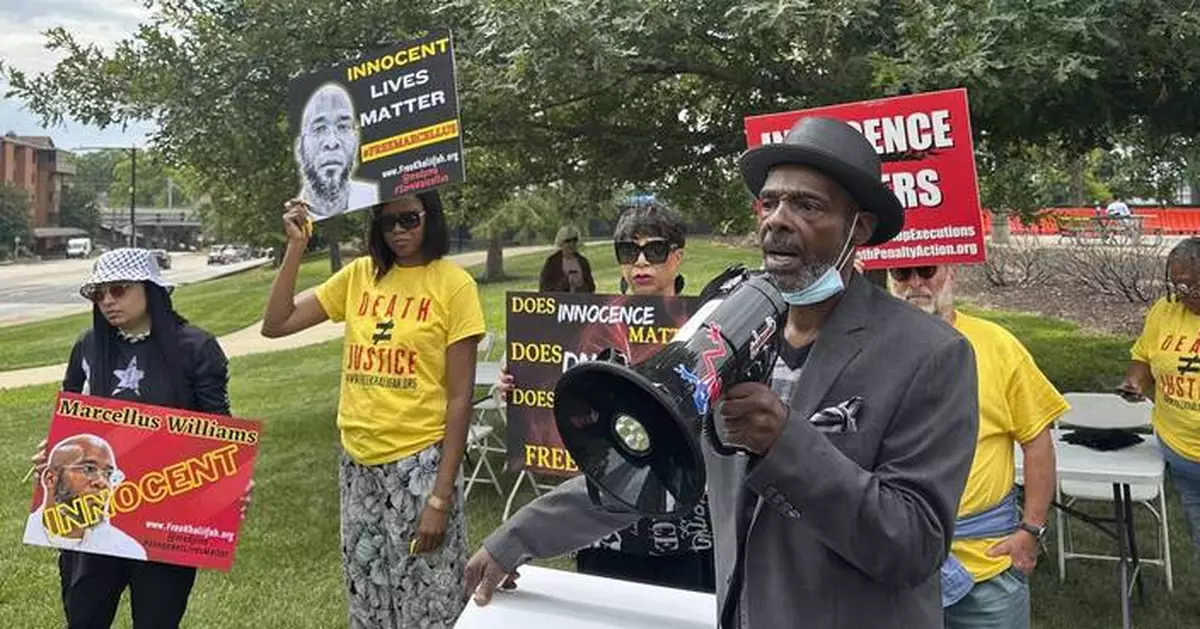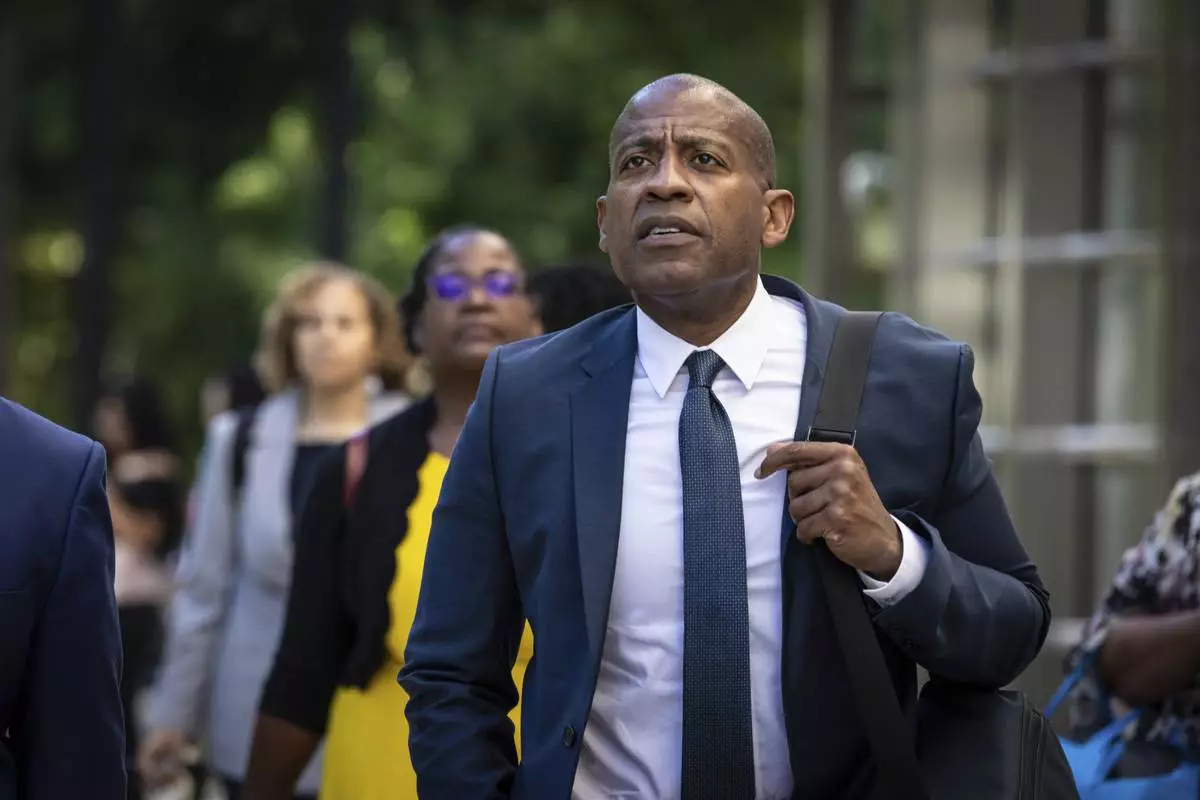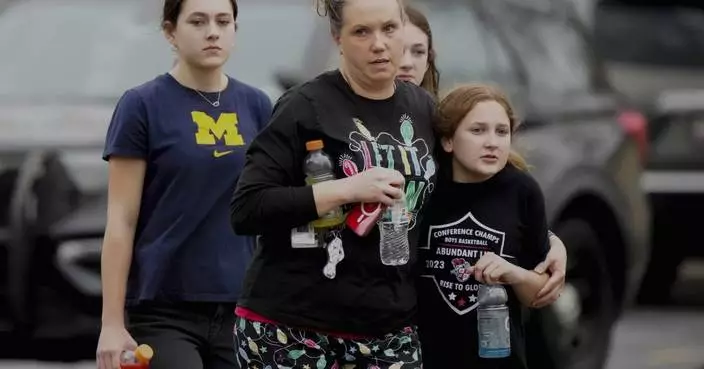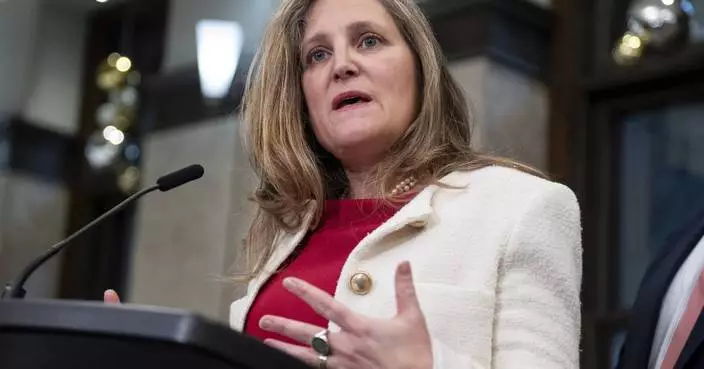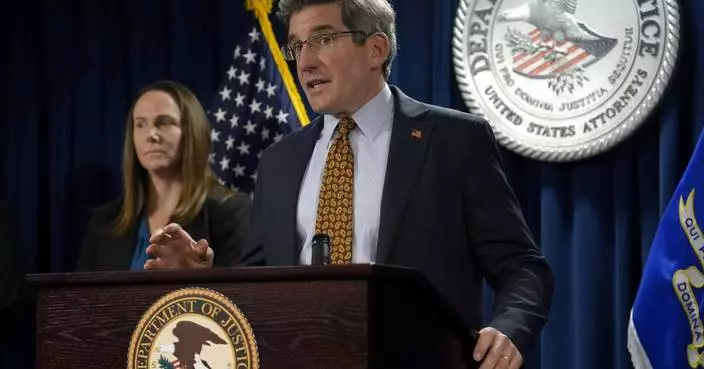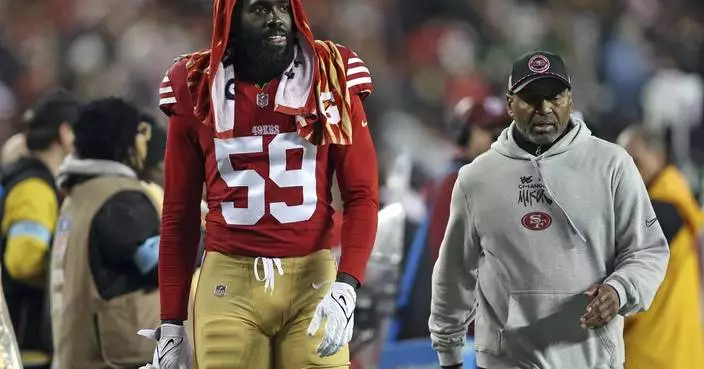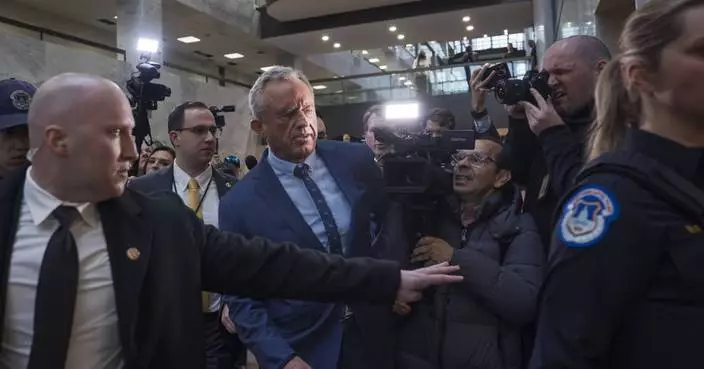ST. LOUIS (AP) — Missouri 's status as one of the most active death penalty states is about to change for one simple reason: The state is running out of inmates to execute.
The lethal injection of Christopher Collings on Dec. 3 left just eight men on death row — a figurative term since condemned Missouri inmates are housed with other prisoners. By contrast, nearly 100 people were living with a death sentence three decades ago.
Three of the eight Missouri inmates will almost certainly live out their lives in prison after being declared mentally incompetent for execution. Court appeals continue for the other five, and no new executions are scheduled.
Missouri isn’t alone. Across the nation, the number of people awaiting the ultimate punishment has declined sharply since the turn of the century.
“We are in a very, very different place than we were 25 years ago ,and that’s for very good reasons," said Robin Maher, executive director of the Death Penalty Information Center, a nonprofit that doesn't take a position on the death penalty but is critical of problems in its application.
The Legal Defense Fund’s Death Row USA report showed 2,180 people with pending death sentences this year, down from 3,682 in 2000. Missouri’s peak year was 1997, when 96 people were on death row.
After reaching a height of 98 U.S. executions in 1999, the annual number hasn’t topped 30 since 2014. So far this year, 23 executions have been carried out — six in Alabama, five in Texas, four in Missouri, three in Oklahoma, two in South Carolina and one each in Georgia, Utah and Florida. Two more are scheduled: Wednesday in Indiana and Thursday in Oklahoma.
Use of the death penalty has declined in part because many states have turned away from it. Twenty-three states and the District of Columbia have abolished the punishment, and five others have moratoriums.
Even in active death penalty states, prosecutors in murder cases are far more inclined to seek life in prison without parole.
In the 1990s, the nation was typically seeing over 300 new death sentences each year. By contrast, 21 people were sentenced to death nationwide in 2023.
A major factor is the cost. At trial, additional experts are often brought in, cases tend to run longer, and a separate hearing is required in the penalty phase, Maher said.
Costs don't end with the prosecution. Court appeals often drag on for decades, running up huge legal bills incurred by public entities — prosecutors, attorneys general, public defenders. Sixteen of this year's 23 executions involved inmates incarcerated 20 years or more.
“Millions and millions of dollars are being used — those are taxpayer dollars — for a system that by and large the American public has concluded is not keeping them safer,” Maher said.
Court rulings have resulted in fewer death sentences, too, including Supreme Court decisions barring execution of the mentally disabled and those who were minors at the time of their crimes, Maher said.
Views of capital punishment also have changed. A Gallup poll last year found 50% of Americans believed capital punishment was applied unfairly, compared to 47% who believed it was fairly implemented. This was the highest such number since Gallup first began asking about the fairness of the death penalty’s application in 2000.
Still, there are indications of new support for the death penalty in some places.
Two executions in South Carolina were the first in that state since 2011. Utah carried out its first execution in 14 years. Idaho tried to execute Thomas Eugene Creech in February — the state's first since 2012 — but corrections department workers couldn't find a viable vein to deliver the lethal drug. The execution in Indiana this week would be the first in 15 years.
Meanwhile, incoming President Donald Trump, who restarted federal executions, with 13 carried out in his first term, has suggested he'll use the death penalty again.
“If President Trump and other elected officials are paying attention to what public support is telling them, they will be more reluctant to use the death penalty going forward,” Maher said.
Some of the most aggressive prosecutors pursuing the death penalty are in California, even though Democratic Gov. Gavin Newsom placed a moratorium on its use.
San Bernardino County District Attorney Jason Anderson's office has successfully prosecuted four death penalty cases since he took office six years ago, including one last week: Jerome Rogers was sentenced to death for robbing and killing two elderly women.
Anderson said some crimes are so heinous that the death penalty “is appropriate to pursue."
“When you sit in a courtroom and you see the anguish of the victim’s surviving family members, they certainly aren’t concerned about their tax dollars going to pursue what we think is a different level of evil in a death penalty case,” Anderson said.
He noted that the four death penalty cases he prosecuted involved the killings of a combined 12 victims.
“How do you put a price tag on 12 dead people?” Anderson asked.
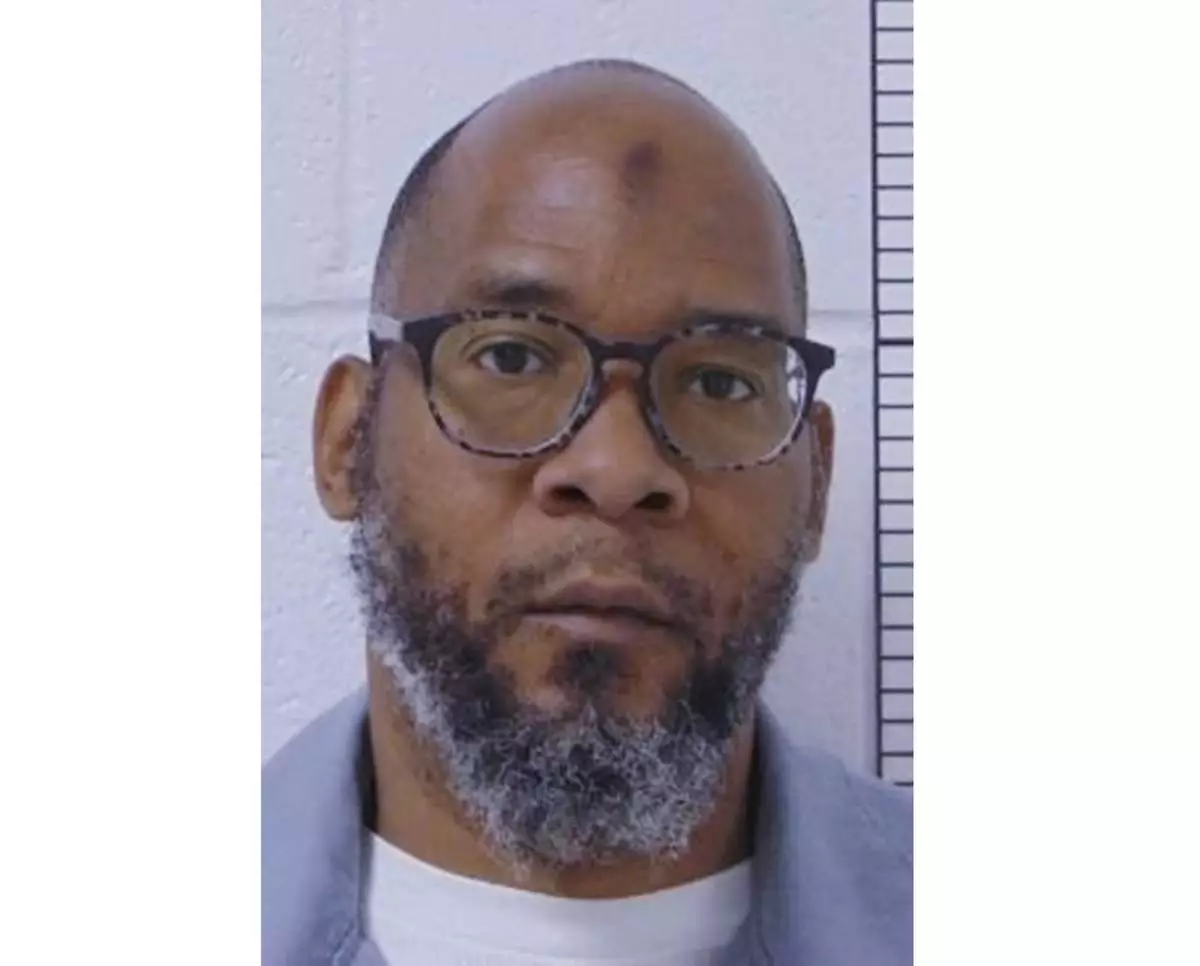
FILE - This photo provided by the Missouri Department of Corrections shows Marcellus Williams. (Missouri Department of Corrections via AP, file)
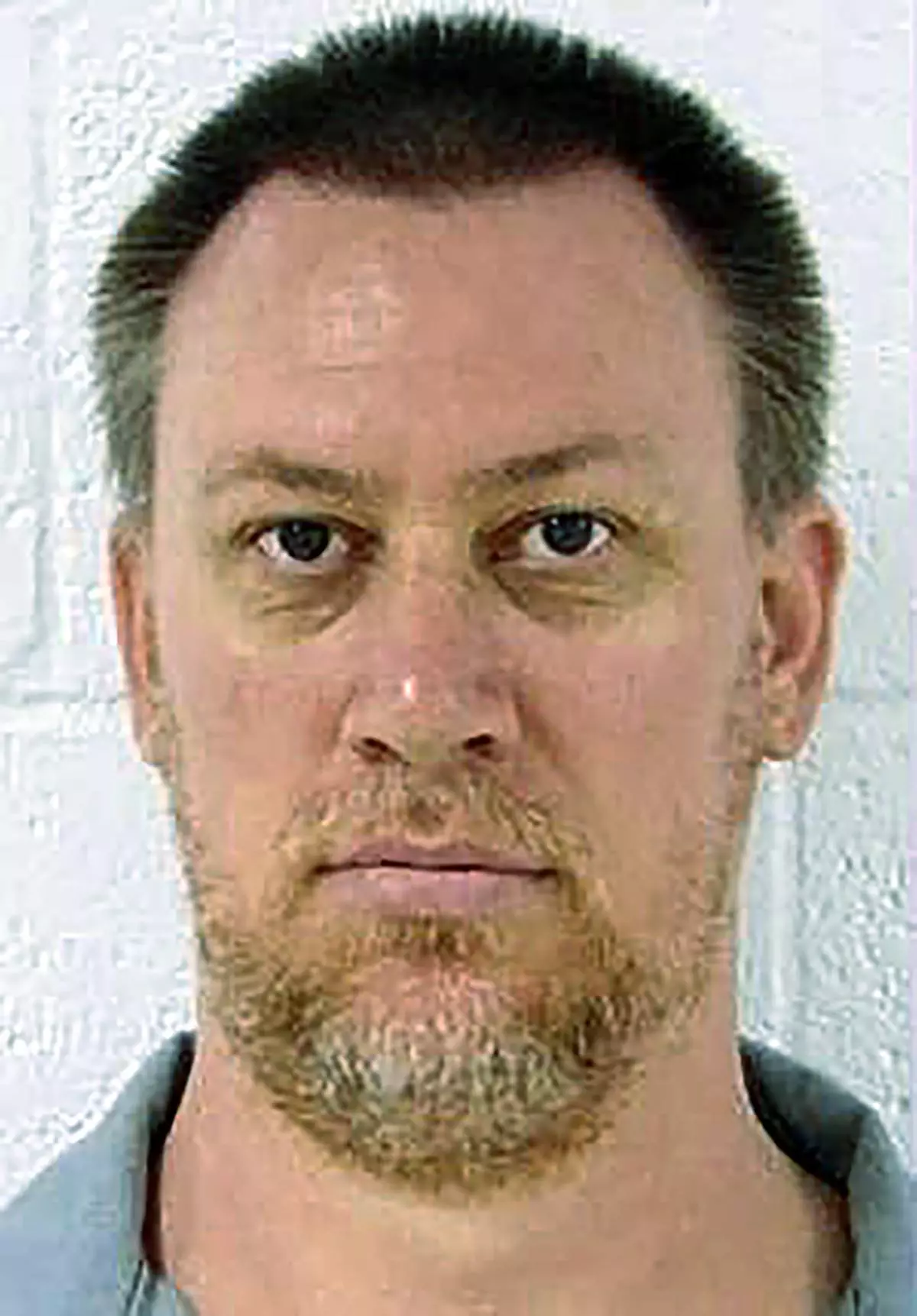
FILE - This undated photo provided by the Missouri Department of Corrections shows Christopher Collings. (Missouri Department of Corrections via AP, File)
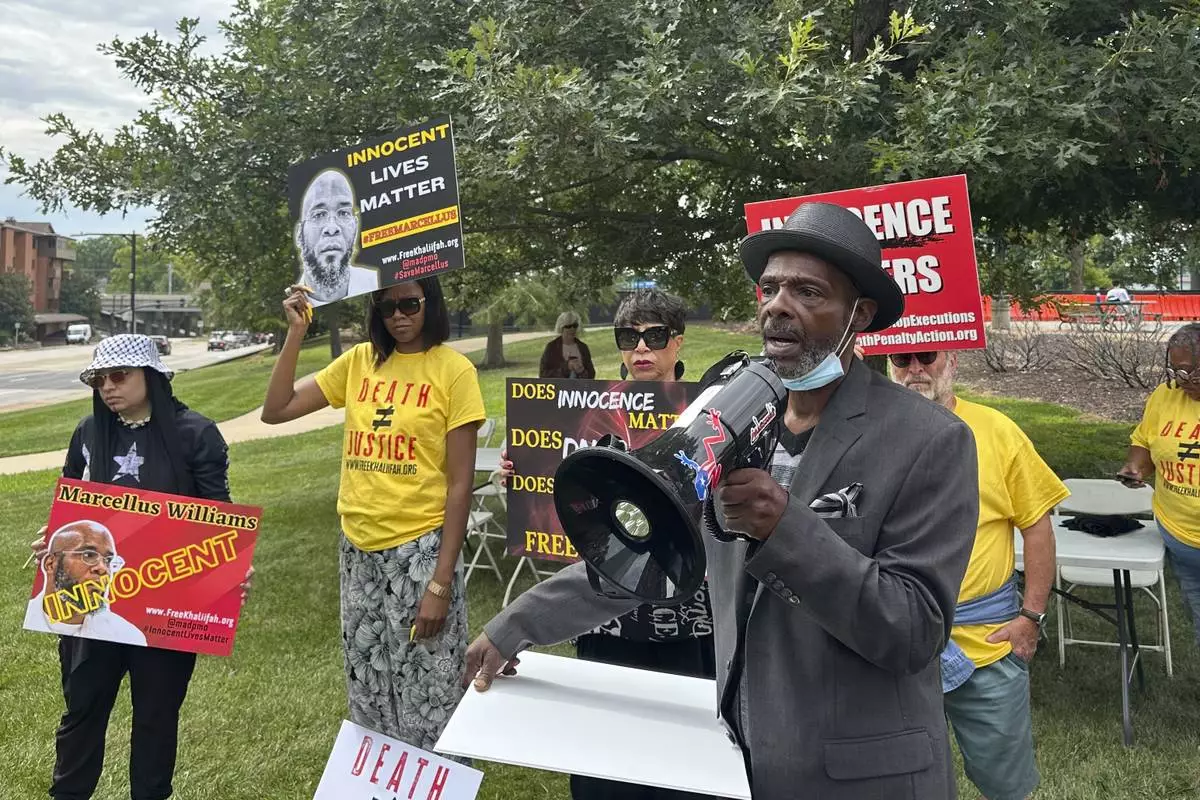
FILE - Joseph Amrine, who was exonerated two decades ago after spending years on death row, speaks at a rally to support Missouri death row inmate Marcellus Williams in Clayton, Mo., on Aug. 21, 2024.(AP Photo/Jim Salter, File)


